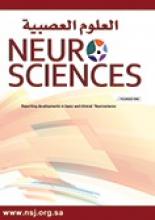18 MARCH 2016 - Responding to a request from the Ministry of Health in Cabo Verde, WHO is sending a team to Cabo Verde, with joint participation of experts from WHO AFRO and the Institut Pasteur, Dakar.
Although the number of cases of Zika in Cabo Verde is declining, the Minister of Health announced on 15 March the first case of microcephaly. Investigations are underway to determine if this case of microcephaly is linked to Cabo Verde’s outbreak of Zika virus. Among the 7 490 suspected cases of Zika virus reported between 21 October 2015 and 6 March 2016, 165 involve pregnant women, from which 44 women have already delivered without any complications or abnormalities. Between 29 February and 6 March 2016, 33 suspected cases of Zika were registered on 2 of 9 islands in Cabo Verde, in Santiago island and São Filipe municipality (Fogo island).
There has been no circulation of the Zika virus on the islands of Sal, São Vicente, Santo Antão, São Nicolau and Brava. Furthermore there have been no cases reported on the islands of Boa Vista and Maio since mid-February.
The team includes epidemiologists, laboratory experts, maternal health specialists and communication staff who will collaborate with the Ministry of Health to evaluate the reported case of microcephaly and to gain a better understanding of the dynamics of the outbreak and its impact. It will also identify potential remaining gaps and to support the country’s response and investigations.
The team will be building on the work already underway by the health authorities in the country. The first group departed for Cabo Verde on 17 March to provide laboratory technical support, including further laboratory investigation and enhancing laboratory diagnostics capacity. Other team members will review surveillance data and systems tracking Zika virus and its complications, assess and document vector control processes, review interventions for managing pregnancy in the context of Zika virus, and support outreach to communities and the public to raise awareness.
WHO is also assisting the Ministry of Health to implement WHO guidelines for managing pregnancies of women infected with Zika to ensure women’s decisions about their pregnancies are based on the best possible information about risks to the fetus.
Included in WHO guidance for pregnant women in the context of Zika are the following recommendations:
Pregnant women living in areas of Zika virus transmission should follow the same prevention guidelines as the general population.
Pregnant women living in areas with ongoing Zika virus transmission should a) attend their regular antenatal care visits in accordance with national standards and comply with the recommendations of their health-care providers and b) start antenatal care visits early for diagnosis and appropriate care and follow-up if they develop any Zika virus symptoms or signs.
Accurate and evidence-based information on the prognosis of the identified abnormalities should be provided to the affected pregnant woman, and her partner if she wishes.
Based on the prognosis of associated fetal brain abnormalities, the woman – and her partner if she wishes – should be offered non-directive counselling so that she, in consultation with her health-care provider, can make a fully informed choice about the next steps in the management of her pregnancy.
Women who carry their pregnancy to term (until the birth of the baby) must receive appropriate care and support to manage anxiety, stress and the birth environment.
Plans for care and management of the baby soon after birth should be discussed with the parents in consultation with a paediatrician or paediatric neurologist where available.
Women who wish to discontinue their pregnancy should receive accurate information about their options to the full extent of the law, including harm reduction where the care desired is not readily available.
Women, whatever their individual choices with respect to their pregnancies, must be treated with respect and dignity.
Available from: http://www.who.int/mediacentre/news/notes/2016/cabo-verde-zika/en/
- Copyright: © Neurosciences
Neurosciences is an Open Access journal and articles published are distributed under the terms of the Creative Commons Attribution-NonCommercial License (CC BY-NC). Readers may copy, distribute, and display the work for non-commercial purposes with the proper citation of the original work.






